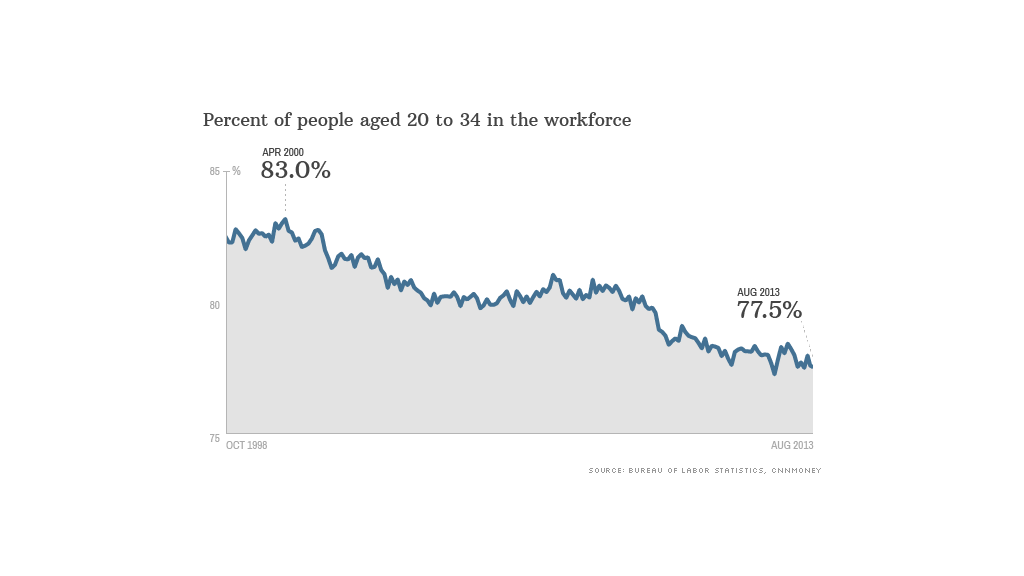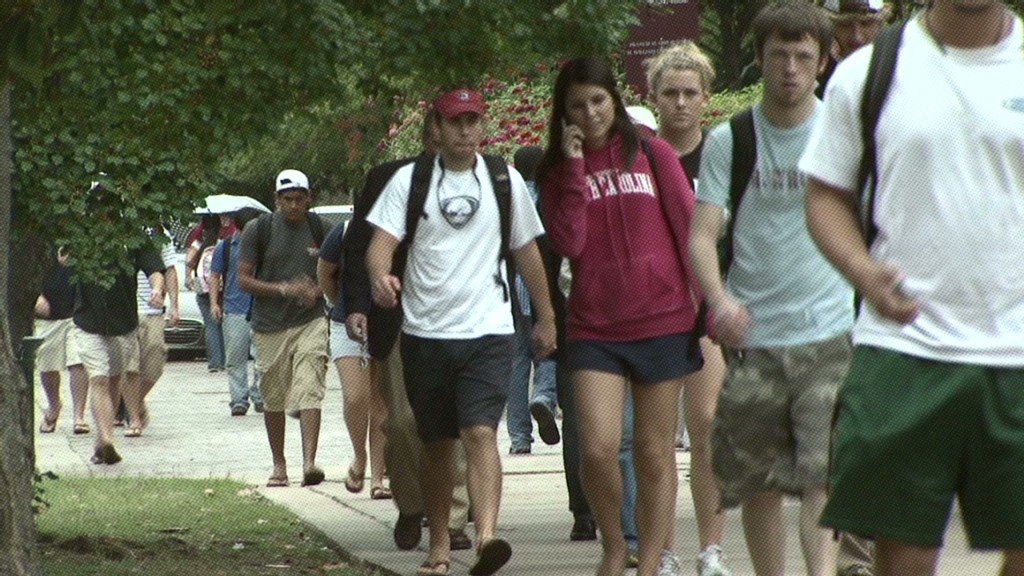
A job used to be the next step after a diploma. But now, young people aren't in any rush to start working.
Less than 78% of people aged 20 to 34 either have jobs or are looking for work, according to the Bureau of Labor Statistics. That's down from the peak of 83% in 2000, and the lowest since the 1970s.
The biggest thing keeping young people out of work is the weak economy.
Recessions are particularly hard on the young, with last-in, first-out policies at many organizations and a preference at firms to freeze hiring before they start laying off employees, which hurts recent grads.
But there are other reasons as well -- what economists call "structural changes" -- that could mean a permanent shift in workplace demographics.
Related: Why America's youth aren't finding jobs
Staying in school: Economists generally agree that, aside from the economy, extended education is the biggest reason why today's youth are shunning the job market.
More people are going to college now -- 25% more compared to 2000 -- and they're taking longer to finish.
There are a few reasons why young people are spending more years at school.
First, they're getting more advanced degrees.
"We used to say that a high school degree wasn't sufficient to provide a middle class income," said Bill Rodgers, a professor and chief economist at Rutgers University's Heldrich Center for Workforce Development. "Now we're saying no longer is a bachelor's degree."
Second, college is getting more expensive. Rodgers believes the increased financial burden of higher education is also causing people to take longer to finish, as they'll take fewer classes per semester or drop out for periods of time before scraping up enough money to enroll again.
Staying home: Since 2000, married women between the ages of 25 and 34 have been leaving the labor force at a slightly higher rate than young people at large, according to BLS.
There could be many reasons for that, but Rodgers thinks stagnant wages on top of rising child care costs are two of them.
"The recession has caused a lot of people to do a gut check on what they want in their lives," said Rodgers. "They've decided they want to spend time with their kids."
Share your story: Are you delaying your start in the workforce?
Living longer: People are also living longer. Longer lives often mean delaying some of life's big mile stones -- graduating from college, getting married, buying a house and having kids.
"They are going to live a lot longer than their parents and their grandparents, and they know it," said William Galston, a Brookings Institution fellow who has studied issues of 20-somethings. "If you think you're going to live until 90, why rush into marriage at 23?"
Yet marriage, and the responsibilities that often come along with it, is a big incentive for people to get and keep a job. "Committed consumption" is what economists call it.
"You're more answerable than you were before," said Galston. "You can't just drift around."

Giving up: Changing workplace trends have meant fewer opportunities for those just starting out. A major one: the baby boomers delaying retirement. They're also living longer, and they're realizing they may not have stashed away enough money for retirement
As a result, they tend to hold on to their jobs.
The percentage of the people aged 55 and over in the workforce has gone from just over 30% in 2000 to over 40% currently, according to BLS.
The result is fewer opportunities on the lower end of the job ladder, which has kept a lot of millennials on the sidelines.


